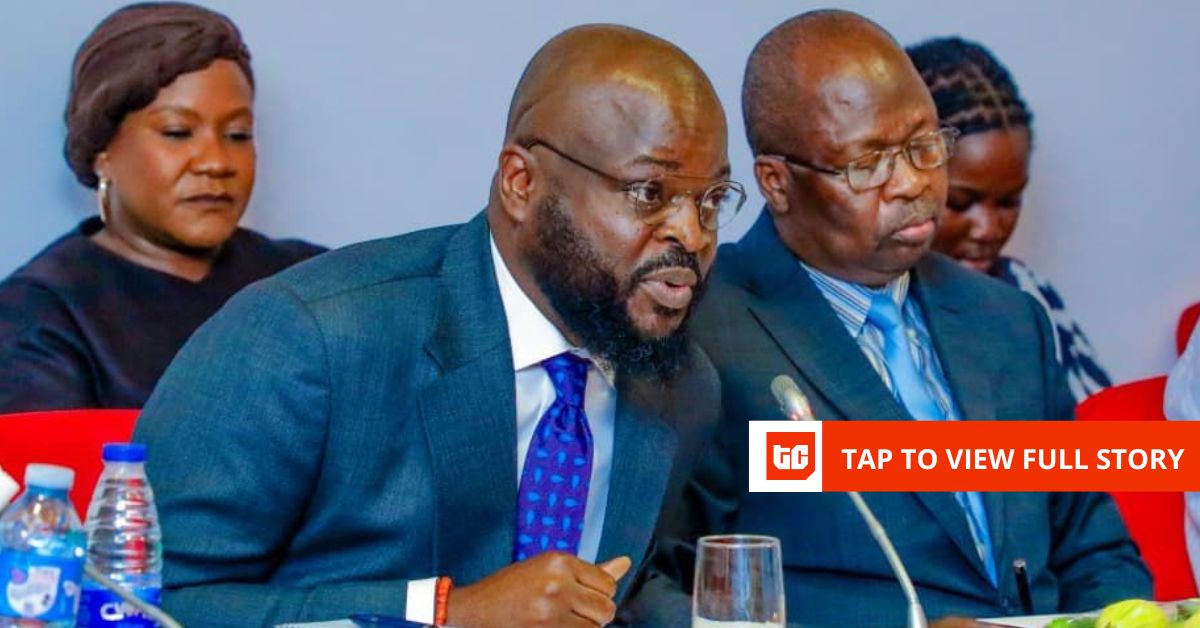On October 23, the Nigerian Senate confirmed Idris Olorunnimbe as Chairman of the Board of Commissioners of the Nigerian Communications Commission (NCC), along with eight other members. The confirmation, following President Bola Tinubu’s nominations in August, restores a fully constituted leadership at the country’s top communications regulator after over a year of operating with an incomplete board.
Other confirmed board members include Abraham Oshidami (Executive Commissioner, Technical Services), Rimini Makama (Executive Commissioner, Stakeholder Management), Maryam Bayi, Col. Abdulwahab Lawal (Rtd), Senator Lekan Mustafa, Chris Okorie, and Princess Oforitsenere Emiko, as well as the Board Secretary.
The appointment ends a leadership vacuum that began after the tenure of the previous board, led by Adeolu Akande, expired in 2023 under former President Muhammadu Buhari. During that period, the NCC functioned without its full governance structure, a gap that many experts said limited its ability to provide strong policy oversight amid rapid shifts in Nigeria’s digital economy.
The Senate’s confirmation also completes the reconstitution of the Universal Service Provision Fund (USPF) Board, chaired by Bosun Tijani, Minister of Communications, Innovation and Digital Economy, with Olorunnimbe serving as Vice Chairman. The move restores compliance with Section 5(3) of the Nigerian Communications Act (NCA) 2003, which mandates that the Commission must always maintain a duly constituted Board of Commissioners.
Governance restored at the NCC
The new leadership team positions the NCC for renewed stability and strategic focus. Olorunnimbe assumes the chairmanship, while Aminu Maida has been reappointed as Executive Vice Chairman (EVC) and Chief Executive Officer (CEO), ensuring continuity at the top of the regulator’s executive arm. Together, they oversee Nigeria’s $75 billion telecommunications sector, at a time when digital transformation and regulatory reform are converging.
The NCC’s leadership model, established by the NCA 2003, separates governance from operations. The Board of Commissioners provides strategic and policy direction, while executive management handles day-to-day regulation, licensing, and enforcement. This structure was designed to safeguard the NCC’s independence and prevent political interference while maintaining accountability to the Nigerian public.
Under this framework, the Chairman plays a non-executive, policy-focused role; guiding deliberations, ensuring governance principles, and aligning regulatory actions with national priorities. The EVC, in contrast, leads operational execution, directing departments such as Licensing, Spectrum Administration, Consumer Affairs, and Technical Standards.
The non-executive Commissioners, often overlooked in public discourse, are equally vital. Drawn from diverse professional backgrounds, including telecoms, finance, law, and public policy, they represent public and industry interests within the Board. Their role is to ensure transparency, balance competing interests, and prevent both corporate capture and bureaucratic inertia.
Meet the new board members
Abraham Oshadami, appointed as Executive Commissioner, Technical Services, is a seasoned telecommunications engineer and regulator with two decades of experience in spectrum management, network planning, and technical policy formulation at NCC. He has played a key role in advancing Nigeria’s broadband expansion and ensuring efficient use of spectrum resources.
Rimini Makama, serving as Executive Commissioner, Stakeholder Management, is known for her work in public policy, corporate communications, and digital inclusion. As a former public affairs lead in the technology sector, she brings valuable experience in bridging the gap between regulators, private sector operators, and consumers.
Maryam Bayi, a corporate governance and human capital development expert, has held leadership positions in both the public and private sectors. She is known for championing institutional reforms, strategic planning, and workforce capacity building skills that will be pivotal in strengthening the NCC’s internal governance. She was recalled to join the board after she retired from the Commission in 2019, after over two decades of service.
Col. Abdulwahab Lawal (Rtd) is a retired military officer and communications specialist. Lawal has a distinguished career in national security and regulatory compliance. Before his appointment, he served as the Chairman of the Kwara State Education Trust Fund (KwaraETF).
Senator Lekan Mustafa is a former legislator with experience in public administration and policymaking. He represented the Ogun-East Senatorial District of Ogun State. Mustafa brings an understanding of the legislative process and its intersection with digital regulation.
Chris Okorie, a technology entrepreneur and business strategist, has expertise in legal practices and is involved in ICT-driven enterprises focused on connectivity, digital commerce, and youth innovation.
Oforitsenere Emiko is an entrepreneur and an advocate for women’s empowerment in technology. Emiko has worked on several initiatives promoting digital literacy and inclusion. Before her appointment, she was Managing Director of Kian Smith Company in Nigeria, a mining trading company.
A reform-driven leadership transition
Olorunnimbe’s appointment has sparked discussion about the Tinubu administration’s direction for telecom regulation. Known as the founder and Group CEO of The Temple Company, a global full-service creative company, headquartered in Lagos, Olorunnimbe brings experience in leadership and strategic communications. His appointment is widely seen as a move to inject fresh energy, visibility, and reform-oriented oversight into the Commission.
Public expectations are high that the new Chairman will bring a stronger focus on policy innovation, digital inclusion, and stakeholder engagement. His leadership will be tested by challenges such as balancing national security concerns with user privacy, managing the rollout of 5G, and driving broadband expansion to underserved regions.
The EVC, Maida, continues to lead the NCC’s modernisation efforts, including initiatives on spectrum efficiency, consumer protection, and data-driven regulation. Under Maida, the Commission has championed evidence-based policymaking, such as the publication of quarterly telecoms performance data reports, and closer collaboration with industry players on 5G deployment, Right-of-Way harmonisation, and quality-of-service standards. The full reconstitution of the Board is expected to enhance his capacity to deliver on those reforms through a clearer governance mandate.
Why the board matters
The NCC’s effectiveness depends heavily on the synergy between its Board and executive management. The Board sets strategic direction, the EVC drives execution, and the directorates deliver results. This layered model ensures autonomy, transparency, and alignment with national ICT policy objectives.
Financially, the Commission remains self-sustaining. Its revenues, drawn from licence fees, spectrum sales, and regulatory charges, are managed through an independent budget approved by the National Assembly. Yet independence does not equal isolation; the NCC works closely with agencies such as NITDA, the Nigeria Internet Registration Association (NiRA), and the Ministry of Communications, Innovation, and Digital Economy to shape Nigeria’s broader digital economy.
A fully functional Commission is expected to boost investor confidence, strengthen oversight, and accelerate Nigeria’s push toward ubiquitous broadband and digital inclusion.
As the new leadership settles in, the telecom industry, which contributes nearly 16% to Nigeria’s GDP, will be watching closely. With the NCC now back to full capacity, stakeholders expect a more coherent and decisive regulatory regime capable of addressing emerging issues from AI policy to cybersecurity and infrastructure sharing.










